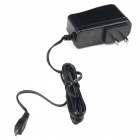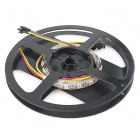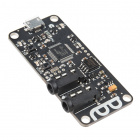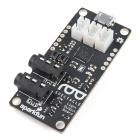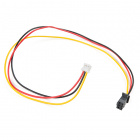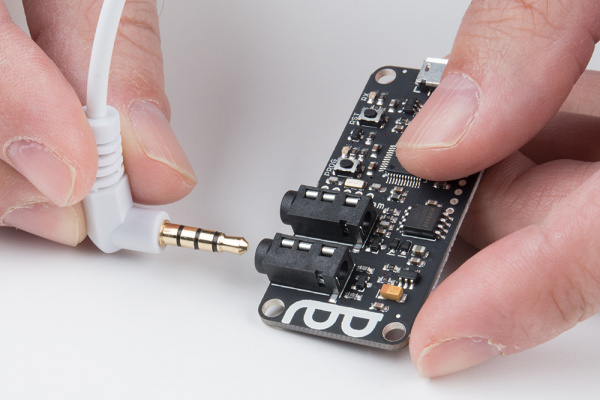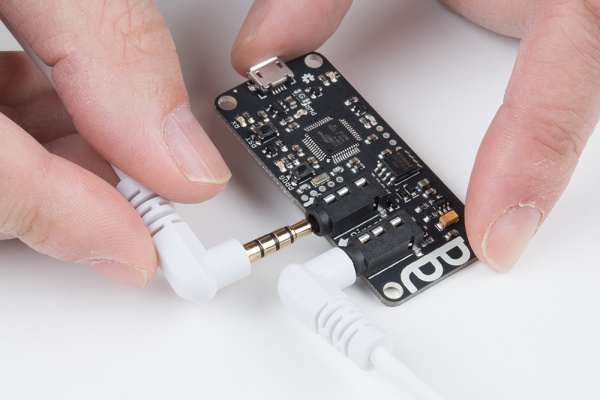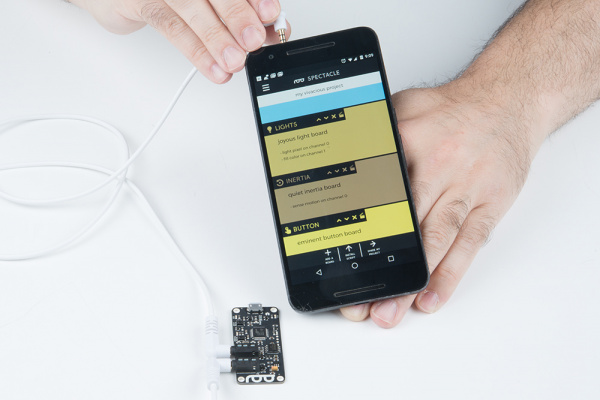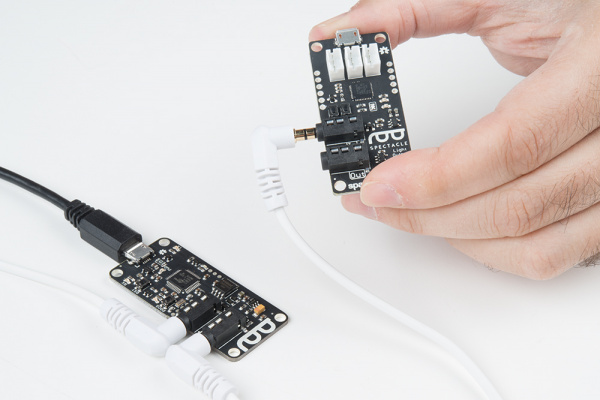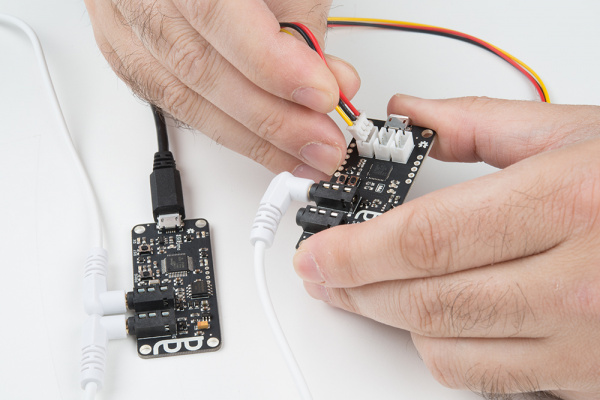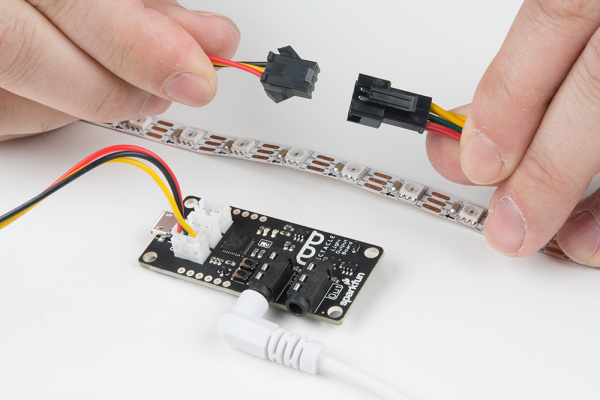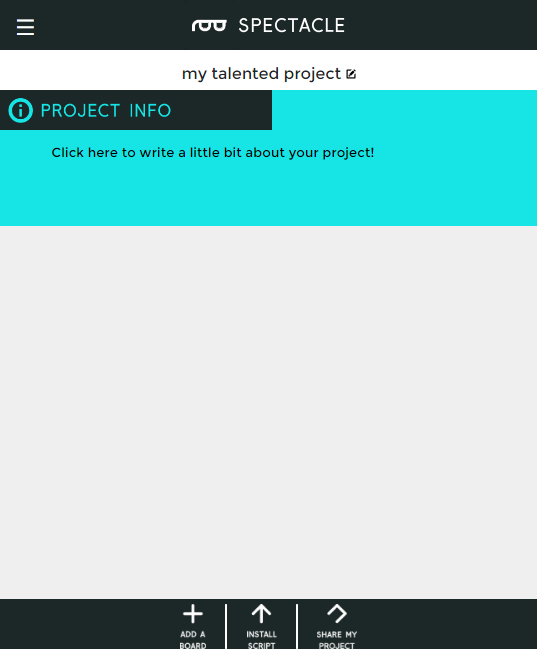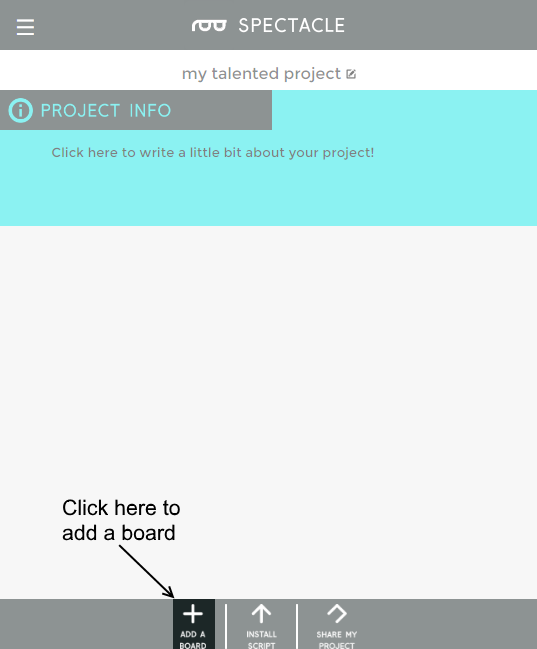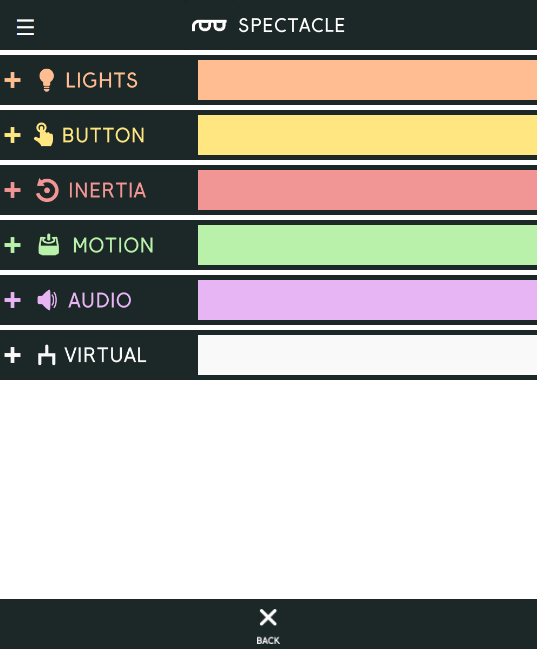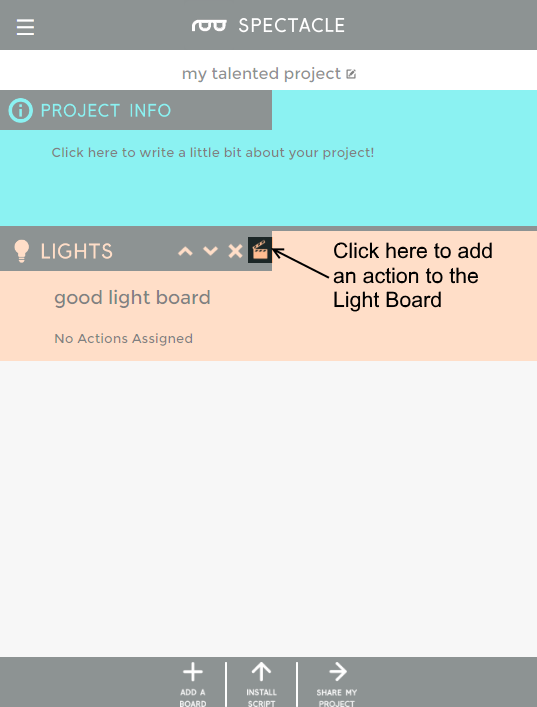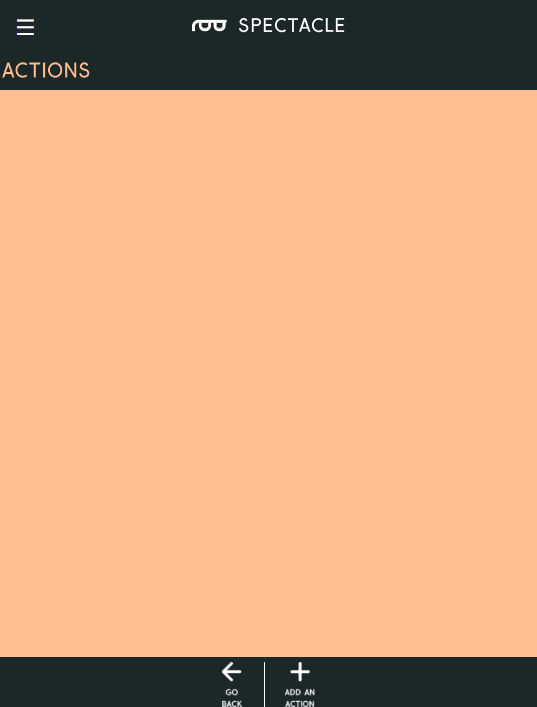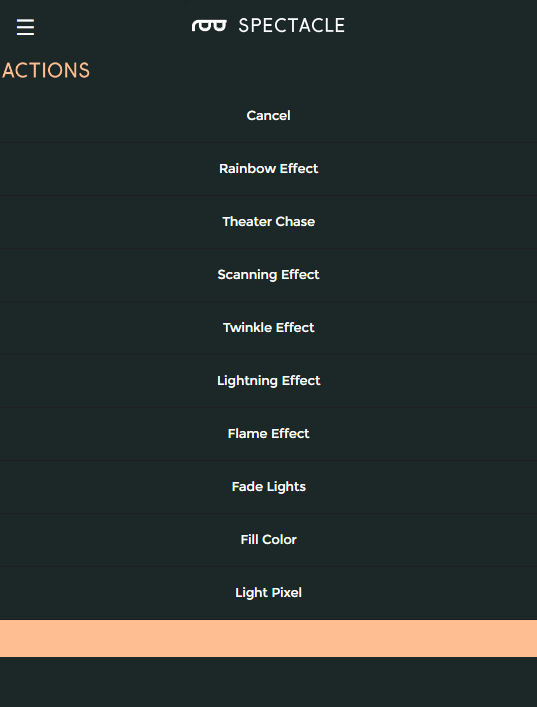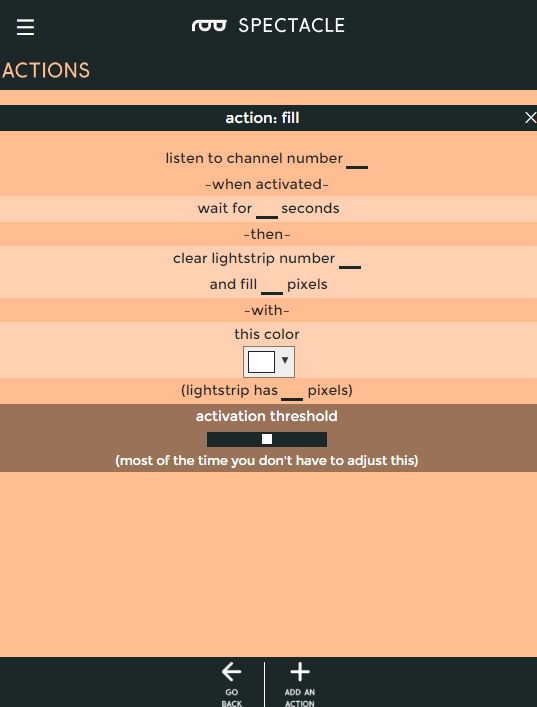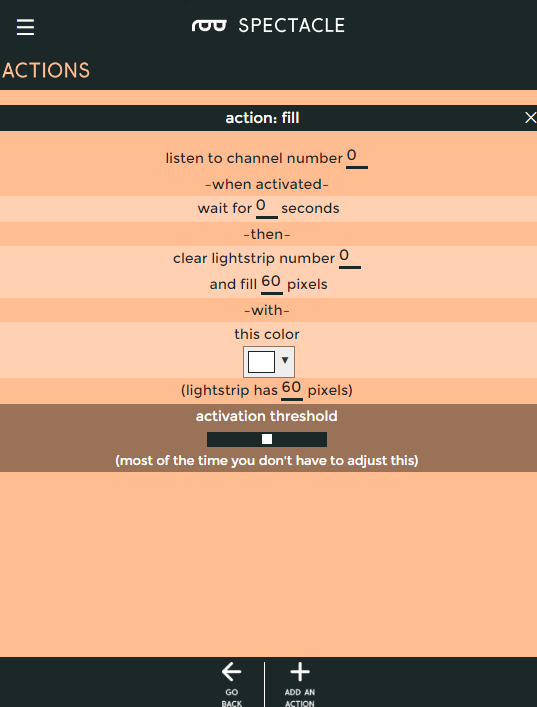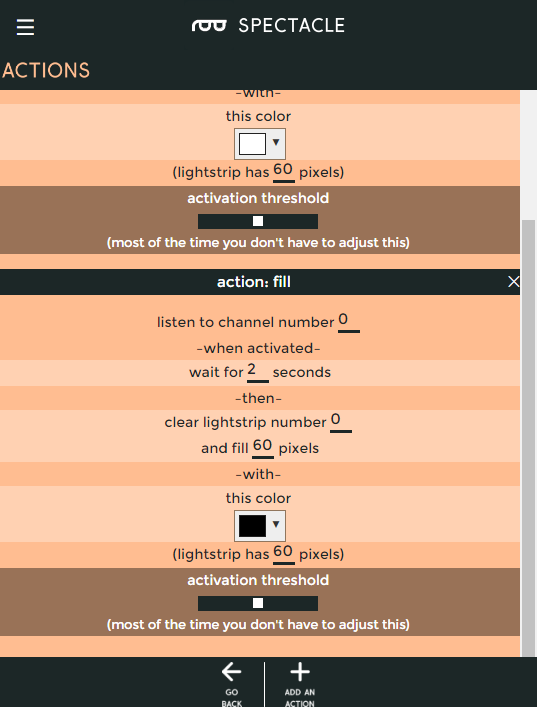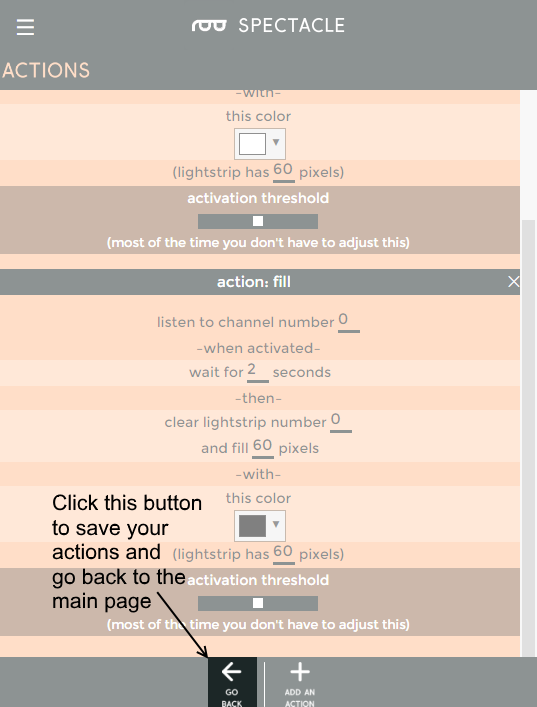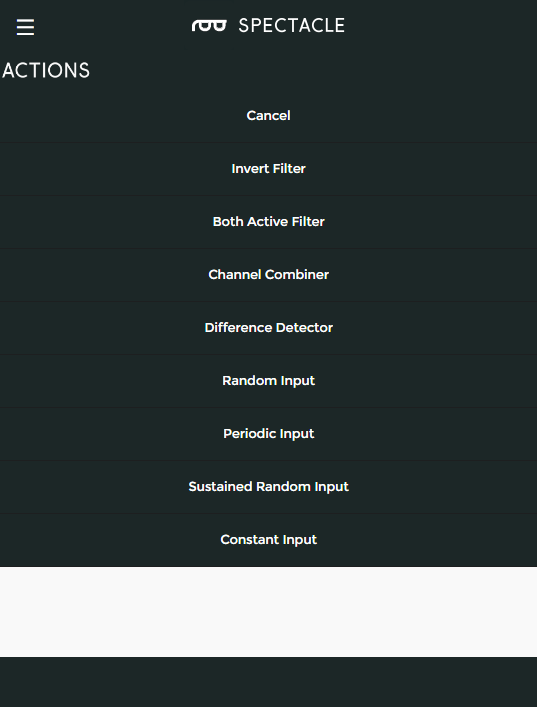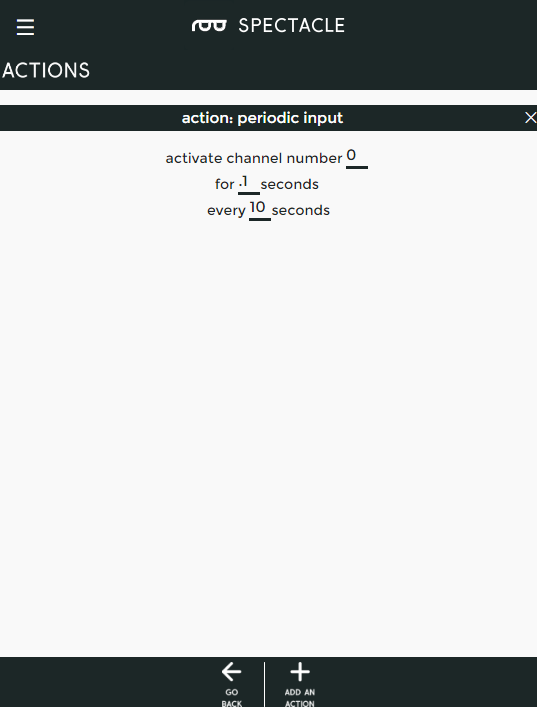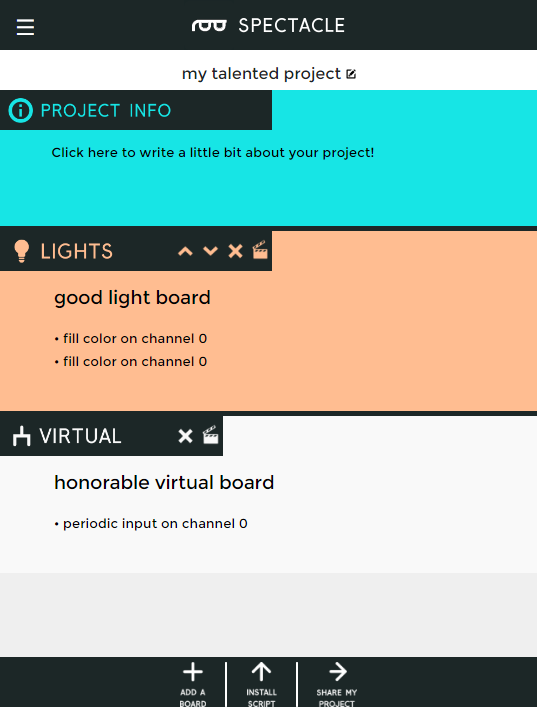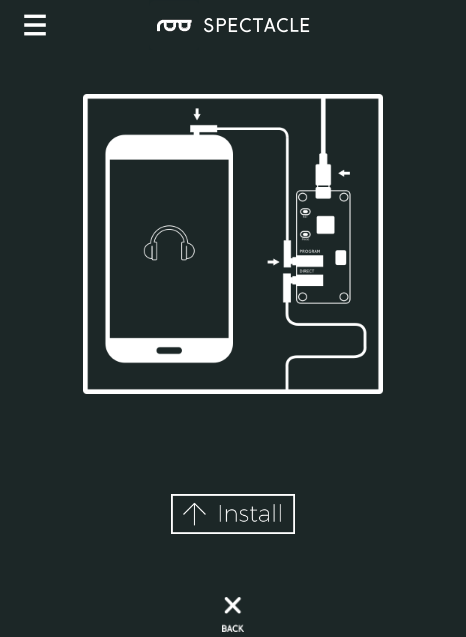Spectacle Light Board Hookup Guide
Example Project
Let's use the Spectacle Light Board to put together a working project! We're going to use a "virtual board" to blink a lightstrip attached to the Light Board.
Connect the boards
To follow along with this tutorial, you'll need the following hardware:
LED RGB Strip - Addressable, Bare (1m)
COM-12025Spectacle Director Board
DEV-13912Spectacle Light Board
DEV-14052JST to JST-SM Wire - 1ft
CAB-14165Note that you will need two of the TRRS cables!
First, plug one end of one of the TRRS cables into the "Direct" jack on the Director Board.
Next, take the other TRRS cable and plug it into the "Program" jack on the Director Board.
Take the other end of this cable and plug it into the audio jack of the phone, tablet, or computer that you'll be using to program the system.
Now, plug the free end of the first cable into the "In" jack on the Light Board. Pay attention to which jack you plug into, as the two jacks are directional.
Next, you'll need the JST-SM to JST-PH adapter cable. Plug the white end into connector position 0 on the Light Board.
Plug the black end of the adapter into the mating connector on the light strip.
Finally, plug the Micro B end of the power adapter into the Director Board, and the other end into the wall. You should see one solid light and one blinking light on the Light Board. On the Director Board, you'll see one solid light and one light which blinks one time, then pauses, then repeats. This shows that power is present and the boards are up and running.
Setting up the board configuration
When you first open the Spectacle app webpage, this is what you'll see. Your project name will differ from mine, as Spectacle assigns a random name to each project.
To continue, we must tell the project which boards we wish to use. Start by clicking the "Add a board" button at the bottom of the page.
This will bring up a list of the available boards. Click anywhere in the "Lights" box to add a Light Board to the system.
Now that you've added the Light Board, it's time to add the actions to the light board. To get a blink effect, we're going to trigger two events on one signal, and make one delayed slightly. Click the clapboard icon as highlighted in the above picture to bring up the list of actions assigned to that board.
Naturally, there are no actions in the list, since we haven't added any yet. Click the "Add an Action" button at the bottom of the screen to bring up a list of available actions.
Here's the list of Light Board actions that will pop up when you hit the "Add an Action" button. We want to add an action of the "Fill Color" type, so click on that entry.
Here's the "Fill Color" action list of options. See the previous page of the tutorial for information about the various fields.
Fill in the blanks of the page as seen above. This sets up the strip to turn on to solid white when an event hits channel 0. Now, add another "Fill Color" type action and scroll down so it's completely visible.
Once you've added the second "Fill Color" action, set the fields as shown above. This will cause it to trigger on the same action as the first fill, but it won't activate for two seconds. Then, it will set all the lights on the strip to "black" (off).
Click the "Go Back" button to return to the main screen. Clicking this button automatically saves your work, as well.
Now, repeat the steps from above to add a Virtual Board. Click the clapboard icon to edit the list of actions for the Virtual Board.
Here are the actions we can use with a Virtual Board. We want a "Periodic Input", to create our blinking action.
You should set up the periodic action to match the settings above. This will generate a short pulse every 10 seconds. Now click "Go Back" again to return to the main page.
Congratulations! You've finished the configuration step of the process. Now it's time to move on to loading the project onto your Director Board.
Uploading
Now that you've created your Spectacle program it's time to upload it to the Director Board. If you followed the instructions above, your uploading device is connected to the board and ready to go, so all you need to do is touch the "Install Script" button at the bottom of the page. That will bring up the page seen below.
Make sure the volume on your device is turned all the way up, and that no other audio source (music, video, etc) is playing in the background. Then press and hold the "RST" button on the Director Board, press and hold the "PROG" button, then release the "RST" button.
This will put the Director Board into program mode. You'll see the light on the board blink three times, pause, then repeat. This is your visual indicator that the board is in program mode. Once you've established that the board is in program mode, you can begin programming by touching the "Install" button on the Spectacle app screen. The button will gray out during the programming process, which should only last for a few seconds. Once programming is done, you'll see the light on the Director Board blink 10 times, pause, then repeat. That's your cue that the program was uploaded successfully.
Press the "RST" button again to reset the system and begin the program!
If you have any troubles, visit the troubleshooting page for help resolving your issues.
